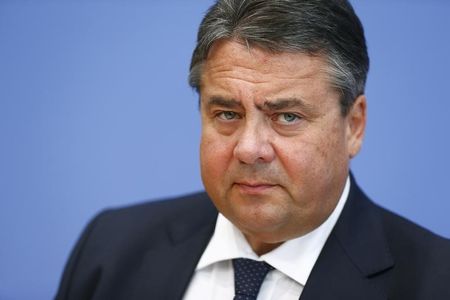BERLIN (Reuters) - German Economy Minister Sigmar Gabriel has promised to speed up the export licencing process for goods that can be put to either civilian or military use, after complaints from industry about severe hold ups.
Gabriel announced earlier this year he intended to take a more restrictive approach to weapons exports, in response to criticism of soaring arms sales in recent years to unstable regions like the Middle East.
But German arms makers and dual-use goods manufacturers have complained bitterly of Gabriel's "vague" intentions, warning that German firms would suffer and production could shift abroad. They also said licences for dual-use goods were hit by severe hold-ups and a lack of transparency.
A new committee announced by the minister on Thursday would aim to make swift rulings on export applications and deal with inquiries from industry. The move is expected to benefit makers of machinery and specialist components such as sensors and lenses.
"Firms need to be able to plan securely and require quick decisions," Gabriel said.
In the case of dual-use goods, authorities want to make sure that a product granted an export licence for civilian use really will be used in such a way, but this can take time to establish.
From 2008 to 2012, Germany was the world's third largest arms exporter after the United States and Russia.

New figures published on Wednesday showed German arms exports overall fell by about 700 million euros ($895 million) (557.81 million pound) to 2.2 billion euros in the first half of the year from the same period last year. However, deals with countries outside the European Union and NATO alliance came to 1.42 billion euros compared with 1.49 billion euros in the same of 2013.
(Reporting by Gernot Heller; Writing by Alexandra Hudson; Editing by Ruth Pitchford)
